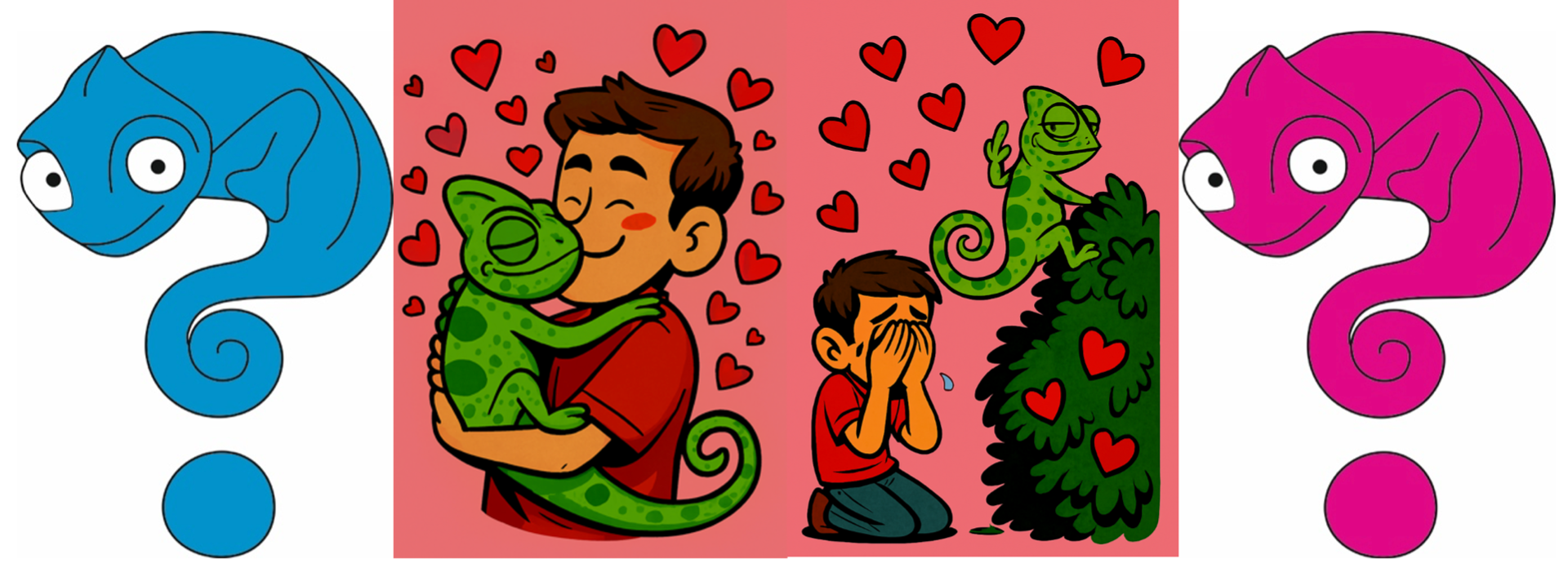Myth 18: “The chameleon knocks on the door and wants to socialize with me”

Reality: No—it doesn't. Chameleons are not social animals. They do not seek companionship, affection, or bonding, not with humans, merely with their own kind. And even this: over distance. What some keepers interpret as "wanting to socialize" is a misunderstanding rooted in anthropomorphism—the projection of human emotions and desires onto animals that do not possess them.
Some keepers swear they have a bond with their chameleon. They claim it reacts to them, seeks their presence, and enjoys climbing on their bodies, hair, or heads. But this is not affection. It is not love. It is not connection. It is misinterpretation. The chameleon is NOT what they believe, it is NOT what they want to believe: it is what it is.
This truth offends many. They insist on metaphysical connections, emotional reciprocity, and even "true love." But the science is clear: chameleons lack the neurological structures required for complex emotional or social behavior. Their brains are designed for survival, not sentiment. They are solitary, territorial, and instinct-driven. They are machines for survival and brutal killing predators—not sweet puppies.
In reality, the so-called "knocking on the door" behavior is not a request for social interaction. It is a response to external stimuli—usually the approach of a human who regularly brings food, or an attempt to escape an enclosure that is unsuitable. Most analyses of such behavior reveal clear environmental stressors: overheating, overplanting, cramped dimensions, poor ventilation, or fear induced by nearby housecats or birds. Once these factors are corrected, the chameleon stops "wanting out."
The best evidence against the myth comes from direct experience. I keep all my chameleons in large, naturalistic outdoor enclosures—3 meters by 3 meters by 3 meters—with climate conditions identical to their native habitats. Not a single chameleon has ever tried to leave. Not one.
Final advice: If you truly believe you have a bond with your chameleon, test it. Take it to a beautiful, safe bush outside. Let it go. Leave it alone for five minutes. Then return and see how cordially it waits for you and how willingly it climbs onto your hand.
I guarantee you: you will hardly find it. And in the most probable case, you will never see it again.
That is not betrayal. That is biology. Respect it.